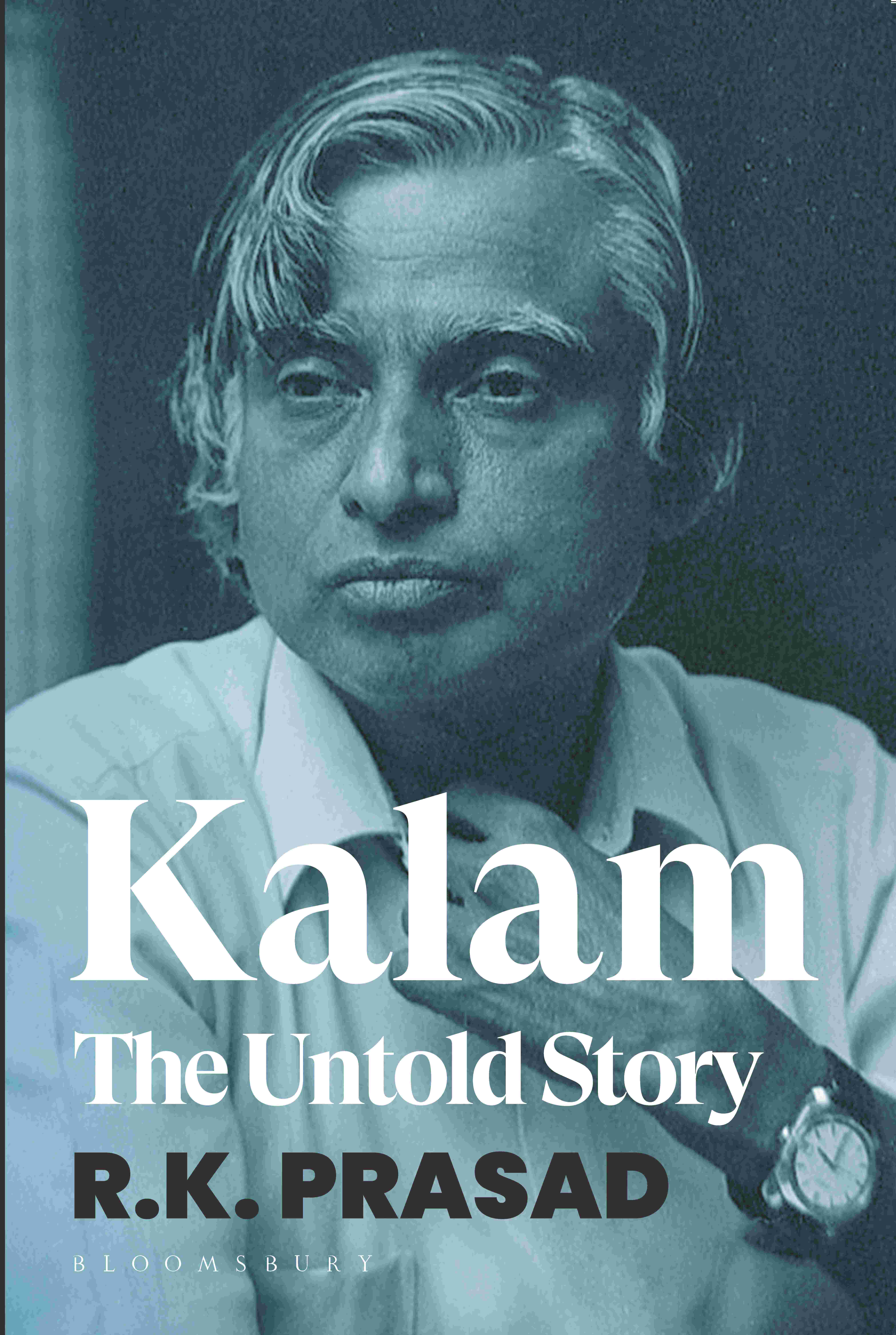An abstruse side of Kalam
In the biography ‘Kalam’, RK Prasad — his private secretary — narrates unheard stories of his life, including his interactions with prominent politicians and controversies surrounding him. Excerpts:

On 25 July 2007 Kalam demitted office. His last day in office was a very busy one. After breakfast, Kalam was at the Central Hall of Parliament by 11 a.m. The swearing-in ceremony went off smoothly. After that he and President Pratibha Patil returned together to Rashtrapati Bhavan, where the formal handing over happened, followed by lunch. The new President then accompanied Kalam to his temporary guest house accommodation provided by the army and after a formal tea she returned to Rashtrapati Bhavan. That was the protocol.
All the staff working for Kalam were at the army guest house before Kalam arrived. For a brief while, there seemed to be nothing to do. We sat together to plan for the next activities and had tea, but my mind was racing. I was worried about my accommodation. I would soon have to move out of the presidential estate, and no house had been allotted to me though it was all sanctioned on paper. Because of Kalam's packed schedule, his staff never had the time to do their personal work. But the good soul solved my problem for me, and I will come to that later.
Kalam had moved out with two or three trunks of books, a few clothes and some daily-use items. He could not care less. All the personal gifts made to him he donated to the Rashtrapati Bhavan museum.
As former president, Kalam could get a house anywhere in the country. He decided to live in Delhi. Once this decision was taken the urban development ministry came up with suggestions. They showed him two or three houses. If he had had a wife and children, they would probably have helped him choose one. My colleague and I were the family substitutes for Kalam, and we went with him to look at the houses. Kalam had in mind a ground-floor office, a first-floor library and a small room for himself. He was not concerned about the rest of the house and its layout. However, the houses available were mostly single-storey bungalows. Finally, the Estates Department found a suitable bungalow on Rajaji Marg. It was occupied by two senior bureaucrats. They were allotted alternative accommodation and asked to vacate quickly as the bungalow had to be renovated for the former president. With great reluctance and some resistance the two officials vacated the bungalow. It took an unusually long time for the building to be renovated to Kalam's specifications, and for some reason the concerned departments were uncooperative and slow.
We had to muster the support of some of Kalam's old colleagues to get the house transformed to suit his requirements. The first floor was made his residence; it had a big hall, a bedroom and a library. A drawing room and offices were created on the ground floor. Office equipment, including computers, a fax machine and printers, were procured through an NGO because as per government rules these were not allotted to a former president. Most of his predecessors had not asked for any such things since they mostly spent a carefree retired life. But such a lifestyle did not suit Kalam.
Right from day one he planned for his next six months. There was travel involved, with invitations for programmes that had to be accepted. Within a week of the handing over of the house, things were on track. Kalam had been provided security by the Ministry of Home Affairs (MHA). He had also been provided a car and a driver. But our request for an additional car for him as a standby was rejected by the MHA. Kalam did not want to make any special request to the then ruling party. Still, on our request, keeping in view the heavy schedule and coordination work involved with other departments, he wrote a note to the concerned authority but was politely refused by the department quoting rules framed in the 1960s and 1970s.
That silence over tea, when we suddenly found ourselves deposited in the army guest house from Rashtrapati Bhavan, was all too brief. A new surge of enthusiasm seemed to have swept over Kalam once he relinquished office. He became extremely energetic and eager to engage with the public, particularly the youth. It appeared as though he was a fish getting back to its pond. The demands for his presence across the country matched his enthusiasm too. In no time a deluge of requests from various parts of the country, from various organizations – NGOs, educational institutions, state governments – drowned us. Even before we could get a grip on the changed routine, he got us engaged in fixing his hectic programmes and travel schedules. Even at the army guest house, when there was no proper office or staff support, we still managed his demands and fulfilled his wishes. Perhaps he wanted to show the UPA chairperson that he was much more popular than anybody then. But like a great statesman he kept his feelings to himself.
(Excerpted with permission from RK Prasad's 'Kalam'; published by Bloomsbury)



